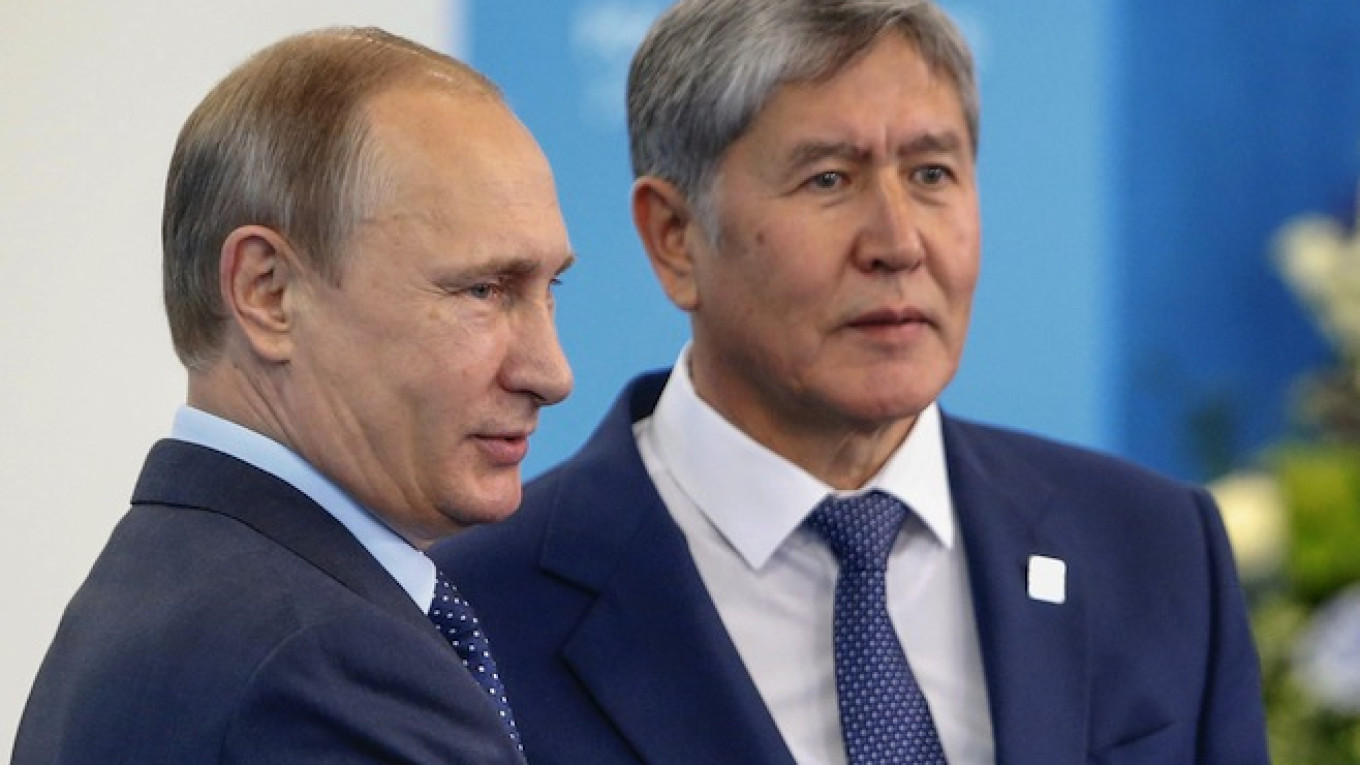BISHKEK — The United States warned Kyrgyzstan on Monday that escalating tension in their relations could threaten a wide range of U.S.-funded aid programs in the Central Asian nation.
Kyrgyzstan's Foreign Ministry on Friday handed a protest note to U.S. Chargé d'Affaires Richard Miles over the granting of a human rights award to a dissident serving a life sentence for "inciting inter-ethnic hatred" in the ex-Soviet republic.
The Kyrgyz government said the 2014 Human Rights Defender Award conferred by the U.S. Department of State on Azimjon Askarov, a journalist and activist, was "creating a threat to civil peace and stability in society."
The Kyrgyz government also said it might renounce the 1993 Bilateral Agreement between the two nations.
"We are studying the technical impact of such a decision, which could put assistance programs that benefit the Kyrgyzstani people in jeopardy," the U.S. government said in a statement published by the U.S. embassy in Bishkek.
The worsening of relations with the U.S. is taking place as the impoverished and mainly Muslim nation of 5.5 million is being drawn deeper into the orbit of its former imperial master, Russia.
Kyrgyzstan has just joined the Moscow-led Eurasian Economic Union, which critics see as Russia's attempt to restore as much as possible of the former Soviet Union.
Russia already has a military airbase near the Kyrgyz capital and has undertaken several large-scale economic projects with the country. Hundreds of thousands of Kyrgyz migrants work in Russia.
Kyrgyzstan, which borders China and lies on a drug-trafficking route out of Afghanistan, saw two presidents deposed by popular revolts in 2005 and 2010, and remains unstable.
Askarov, an ethnic Uzbek, was convicted of "organizing mass disturbances" and stirring up ethnic hatred leading to the killing of a policeman during inter-ethnic clashes in southern Kyrgyzstan in June 2010 when over 400 people were killed.
International and local human rights bodies have demanded his release from jail. Askarov alleged the police had tortured him, New York-based Human Rights Watch said.
Visiting Kyrgyzstan last month, U.N. Secretary-General Ban Ki-moon urged the authorities to hold an impartial investigation into the ethnic clashes and retry those convicted after the bloodshed, irrespective of their ethnicity.?
A Message from The Moscow Times:
Dear readers,
We are facing unprecedented challenges. Russia's Prosecutor General's Office has designated The Moscow Times as an "undesirable" organization, criminalizing our work and putting our staff at risk of prosecution. This follows our earlier unjust labeling as a "foreign agent."
These actions are direct attempts to silence independent journalism in Russia. The authorities claim our work "discredits the decisions of the Russian leadership." We see things differently: we strive to provide accurate, unbiased reporting on Russia.
We, the journalists of The Moscow Times, refuse to be silenced. But to continue our work, we need your help.
Your support, no matter how small, makes a world of difference. If you can, please support us monthly starting from just $2. It's quick to set up, and every contribution makes a significant impact.
By supporting The Moscow Times, you're defending open, independent journalism in the face of repression. Thank you for standing with us.
Remind me later.


